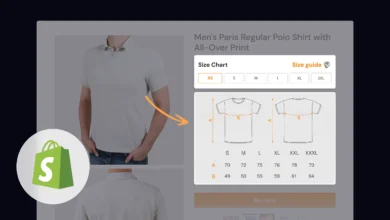How to Evaluate a Business Broker Franchise Opportunity Before You Invest

Understanding The Franchise Business Broker Model
So, you’re looking into a franchise business broker opportunity. That’s a big step, and it’s smart to get a handle on what this whole model actually entails before you put any money down. It’s not quite like buying into a pizza place or a gym franchise, it’s a bit different.
What Does A Franchise Business Broker Do?
A franchise business broker acts as a go-between, connecting people who want to buy a business with people who want to sell one. When you’re looking at a franchise business broker franchise opportunity, you’re essentially buying into a system that helps facilitate these deals. They help clients navigate the complex process of buying or selling a business. This involves a lot of matching, advising, and paperwork. Think of them as matchmakers for the business world, but with a lot more legal and financial stuff involved.
Key Services Offered By Franchise Business Brokers
Franchise business brokers offer a range of services to make these transactions happen. These typically include:
- Business Valuation: Figuring out what a business is actually worth.
- Marketing Businesses for Sale: Advertising the business to potential buyers.
- Buyer Screening: Making sure potential buyers are serious and financially capable.
- Negotiation Assistance: Helping both sides agree on terms.
- Deal Structuring: Putting together the final agreement.
- Closing Coordination: Managing the final steps to complete the sale.
The Role Of A Franchise Business Broker In A Transaction
In any business sale, the broker’s role is pretty central. They’re there to guide both the seller and the buyer. For sellers, they help get the business ready for sale and find the right buyer. For buyers, they help identify suitable businesses and guide them through the acquisition process. It’s a balancing act, trying to keep everyone happy and moving towards a successful sale. They handle a lot of the heavy lifting so that the actual business owners can focus on running their companies.
It’s important to remember that while brokers facilitate deals, they don’t typically handle the legal or accounting aspects directly. They work with lawyers and accountants to get those parts done.
When you’re evaluating a franchise business broker franchise opportunity, understanding these core functions is your first step. It sets the stage for everything else you’ll need to look into.
Evaluating The Franchise Business Broker’s Support System
So, you’re thinking about buying into a franchise business broker system. That’s a big step, and it’s smart to look beyond just the initial pitch. One of the most important things to check out is the support they actually give you. It’s not just about having a brand name; it’s about having the tools and help to make that brand work for you.
Training And Onboarding For New Franchise Business Brokers
When you first sign up, what kind of training do you get? Are they just handing you a binder and saying ‘good luck’? Or is there a structured program? A good franchise will have a solid onboarding process. This usually covers:
- How to understand the business brokerage market.
- The legalities and paperwork involved in selling businesses.
- Sales techniques specific to business transactions.
- Using their proprietary software or systems.
You need to know if they’ll teach you how to actually do the job, not just how to use their logo. Some franchises offer classroom-style training, others are more hands-on, and some might even have you shadow experienced brokers. Ask for details about the length and content of the training. Is it a one-week crash course, or a more spread-out program that lets you absorb the information?
Ongoing Support And Mentorship Programs
Buying a franchise isn’t a ‘set it and forget it’ kind of deal. You’ll want to know what kind of help is available after the initial training wraps up. Do they have a helpline you can call when you hit a snag? Is there a mentor assigned to you, someone who’s been in the trenches and can offer advice? Many successful franchises offer:
- Regular check-ins with a field support representative.
- Access to a network of other franchisees for peer support.
- Advanced training modules for when you want to grow your business.
- Help with difficult deals or client issues.
It’s also worth asking about how they handle updates to their systems or market changes. Do they provide new training or resources when things shift?
Access To Marketing And Lead Generation Tools
Let’s be honest, as a business broker, your success hinges on finding clients who want to buy or sell businesses. What does the franchisor do to help you with this? Do they provide:
- A national website with lead-capture capabilities?
- Templates for local marketing materials like flyers or online ads?
- Guidance on digital marketing strategies (SEO, social media)?
- A system for managing client relationships (CRM)?
Some franchisors might even generate leads centrally and distribute them to franchisees. Understanding their marketing strategy and the tools they provide can give you a good idea of how much effort you’ll need to put in yourself versus how much the franchise system will support you. It’s a big part of what you’re paying for, after all.
Assessing The Franchise Business Broker’s Financial Structure
When you’re looking at buying into a franchise business broker system, the money side of things is pretty important. You need to know exactly what you’re getting into financially, not just today, but down the road too. It’s not just about the sticker price; it’s about the whole financial picture.
Initial Franchise Fee and Investment Requirements
First off, there’s the initial fee to buy into the franchise. This is usually a one-time payment that gets you the right to use the brand name and their system. But that’s just the start. You also have to consider the total startup costs. This can include things like office setup, technology, initial marketing, and working capital to keep things running until you start making money. It’s wise to get a clear breakdown of all these upfront expenses.
Here’s a general idea of what you might expect:
- Initial Franchise Fee: $25,000 – $75,000 (This can vary a lot)
- Estimated Total Investment: $50,000 – $150,000 (Includes fee, build-out, working capital)
- Net Worth Requirement: Often $100,000+ in liquid assets
Royalty Fees and Other Ongoing Costs
After you open your doors, you’ll have ongoing fees. The most common is the royalty fee, which is usually a percentage of your gross revenue. This fee pays for the continued use of the brand, support, and system updates. Beyond royalties, there might be other costs like advertising fund contributions, technology fees, or system-wide marketing charges. Make sure you understand what percentage of your income goes back to the franchisor and what services that covers.
- Royalty Fee: Typically 5% – 10% of gross revenue
- Advertising Fee: Often 1% – 3% of gross revenue
- Technology/Software Fees: May be a flat monthly or annual charge
It’s really important to look at these ongoing costs not just as expenses, but as investments in the franchise system that should help you grow your business. If the fees seem too high for what you get in return, that’s a red flag.
Potential Earning Potential and Profitability
Of course, you want to know how much you can actually make. The franchisor will likely provide financial performance representations, often in their Franchise Disclosure Document (FDD). These can show average earnings or ranges for existing franchisees. Don’t just take these numbers at face value; do your own homework. Talk to existing franchisees about their actual income and profit margins. Understand the factors that influence profitability, like market demand, your own sales skills, and how well you manage your expenses. It’s about realistic expectations, not just promises.
Investigating The Franchise Business Broker’s Market Presence
Before you hand over your hard-earned cash, you really need to check out how well-known and respected the business broker franchise is. It’s not just about the fancy brochures; it’s about whether people actually know and trust the brand when they’re looking to buy or sell a business.
Brand Reputation and Recognition in the Industry
Think about it: if a business broker franchise has a strong name, clients are more likely to seek them out. This means more potential deals for you. You want a brand that pops up when someone searches for business brokers, not one that’s buried on page ten of Google. Look for franchises that have been around for a while and have a solid track record. Are they mentioned in industry publications? Do other business professionals talk about them positively? A well-known brand can significantly reduce your own marketing efforts and attract clients more readily.
Competitor Analysis and Market Share
It’s also smart to see how this franchise stacks up against others in the business brokerage world. How many offices do they have? What’s their slice of the pie, so to speak? A franchise with a larger market share often means they have a more proven system and a wider network. You can usually find this kind of information through industry reports or by asking the franchisor directly about their competitive positioning.
| Metric | Franchise A | Franchise B | Industry Average |
| Market Share (%) | 15% | 12% | 8% |
| Number of Offices | 150 | 120 | 75 |
| Years in Operation | 20 | 15 | 18 |
Success Stories and Client Testimonials
This is where you get the real dirt. What are past clients saying? Look for testimonials and case studies on their website, but also try to find independent reviews. Are there stories of successful business sales? Did the franchise’s system help brokers close deals efficiently? Hearing from people who have actually used the service, especially other franchisees, can give you a much clearer picture of what to expect. It’s one thing for the franchisor to tell you they’re great; it’s another for actual clients to back it up.
Don’t just skim the positive reviews. Look for common themes in both good and bad feedback. Sometimes, the constructive criticism can be the most informative part, showing you potential challenges you might face and how the franchise addresses them.
Analyzing The Franchise Business Broker’s Legal And Operational Framework
When you’re looking at buying into a franchise business broker system, the paperwork is a big deal. It’s not just about the money; it’s about the rules of the road and how things are supposed to work. Getting this part right means you know what you’re getting into and what’s expected of you.
Franchise Disclosure Document Review
The Franchise Disclosure Document, or FDD, is like the rulebook for the whole franchise. It’s a big document, and it’s got a lot of information you need to look at. You really need to read this carefully before signing anything. It covers things like:
- The franchisor’s background: Who are they, and what’s their history?
- Fees: All the costs involved, from the start-up fee to ongoing royalties.
- Your obligations: What are you required to do as a franchisee?
- The franchisor’s obligations: What are they supposed to provide you?
- Restrictions: What can’t you do?
- Renewal, termination, and transfer: What happens down the line?
It’s a good idea to have a lawyer who knows franchises look this over with you. They can spot things you might miss.
Territory Rights And Exclusivity Clauses
This part is about where you can operate your business. Some franchises give you a specific area where you’re the only one allowed to use the brand. Others might not offer any protection, meaning other franchisees could pop up right next door. You need to understand:
- What kind of territory are you getting? Is it a defined geographic area, or is it more open?
- Is there exclusivity? Can the franchisor sell franchises to others in your area?
- What happens if the franchisor sells franchises nearby? Are there any protections for you?
Knowing this helps you figure out how much competition you might face from other people using the same brand.
Operational Manuals And Compliance Standards
Franchisors usually have a detailed manual that explains exactly how to run the business. This covers everything from how to handle customer inquiries to the specific software you need to use. It’s all about making sure the business runs the same way, no matter who owns the franchise. You’ll want to see:
- How detailed is the operational manual? Does it cover all the key aspects of the business?
- What are the standards for customer service? How do they expect you to interact with clients?
- What are the reporting requirements? What information do you need to give back to the franchisor?
Following the established procedures is key to maintaining brand consistency and customer trust. Deviating from the manual can lead to problems with the franchisor and might even affect your business’s reputation.
It’s important to feel comfortable with the way the business is run and to make sure you can meet all the required standards. If the operational side seems too complicated or doesn’t fit with how you want to work, it might not be the right fit for you.
Considering The Franchise Business Broker’s Exit Strategy
So, you’re thinking about buying into a business broker franchise. That’s great! But have you thought about what happens when you want to get out? It’s not just about the day-to-day operations; you need a plan for the end game, too. Thinking about your exit strategy from the start can save you a lot of headaches down the road.
Options For Selling Your Franchise Business Broker Unit
When it’s time to move on, you’ll likely want to sell your franchise unit. The good news is that most franchise agreements allow for this. You’ll probably need to find a buyer who meets the franchisor’s approval, which usually involves a background check and sometimes specific experience requirements. The franchisor often has a process for approving new franchisees, so expect some paperwork and a review period. It’s not always a quick process, but having a clear path to selling is a big plus.
Transferability Of The Franchise Agreement
This is a big one. You need to know how easily you can transfer your franchise agreement to someone else. Some agreements are pretty straightforward, while others can have more hoops to jump through. Check the terms regarding transfer fees, the franchisor’s right of first refusal (meaning they can buy it back before you sell it to someone else), and any required training for the new owner. A transferable agreement makes your investment more liquid.
Long-Term Viability Of The Franchise Business Broker Brand
Think about the brand itself. Is it likely to be around and relevant in 5, 10, or even 20 years? A strong, well-respected brand will make your unit easier to sell when the time comes. Look at the franchisor’s financial health, their innovation in the market, and how they handle changes in the business brokerage industry. A brand that’s constantly adapting will be more attractive to future buyers. You don’t want to invest in something that might be obsolete by the time you’re ready to exit.
It’s easy to get caught up in the excitement of starting a new business venture, especially when it comes to franchising. You’re focused on the potential earnings and the support you’ll receive. But don’t forget to look at the back end. What happens when you decide it’s time to sell your stake or pass it on? Understanding the rules and the market for selling your specific franchise unit is just as important as understanding how to run it.
Wrapping It Up
So, you’ve looked at the numbers, talked to current owners, and checked out the training. Buying into a business broker franchise is a big step, no doubt about it. It’s not just about the money; it’s about finding a good fit for you and your goals. Take your time with this decision. Don’t let anyone rush you. If it feels right after all your homework, then go for it. But if something feels off, it’s okay to walk away. There are other opportunities out there. The main thing is to be smart and do your due diligence so you can build a successful business.
Frequently Asked Questions
What exactly does a franchise business broker do?
Think of a franchise business broker as a matchmaker for businesses. They help people who want to buy a franchise connect with companies that are selling franchises. They guide both sides through the whole process, making it smoother.
What kind of help can I expect when I buy into a franchise business broker company?
Good franchise companies offer solid training when you start. They’ll also give you ongoing support, like advice and help when you need it. Plus, they usually provide tools to help you find customers.
How do franchise business brokers make money, and what are the costs involved?
You’ll typically pay an initial fee to join the franchise. Then, there are regular payments, like royalties, based on your earnings. The goal is that you’ll make enough money to cover these costs and have plenty left over.
How can I tell if a franchise business broker company is well-known and trusted?
Look at how people talk about the brand. Do they have a good name in the business world? See if they have success stories from other people who bought their franchise. Checking out their competitors can also give you clues.
What important papers do I need to look at before buying a franchise business broker?
You’ll get a Franchise Disclosure Document (FDD). This is a super important paper that explains all the details, including fees and rules. You should also check out their operating manuals to understand how things work day-to-day.
What happens if I want to stop being a franchise business broker later on?
Most franchise agreements have rules about selling your business or transferring it to someone else. You should also think about whether the franchise brand itself is likely to do well in the future, so your business stays valuable.



